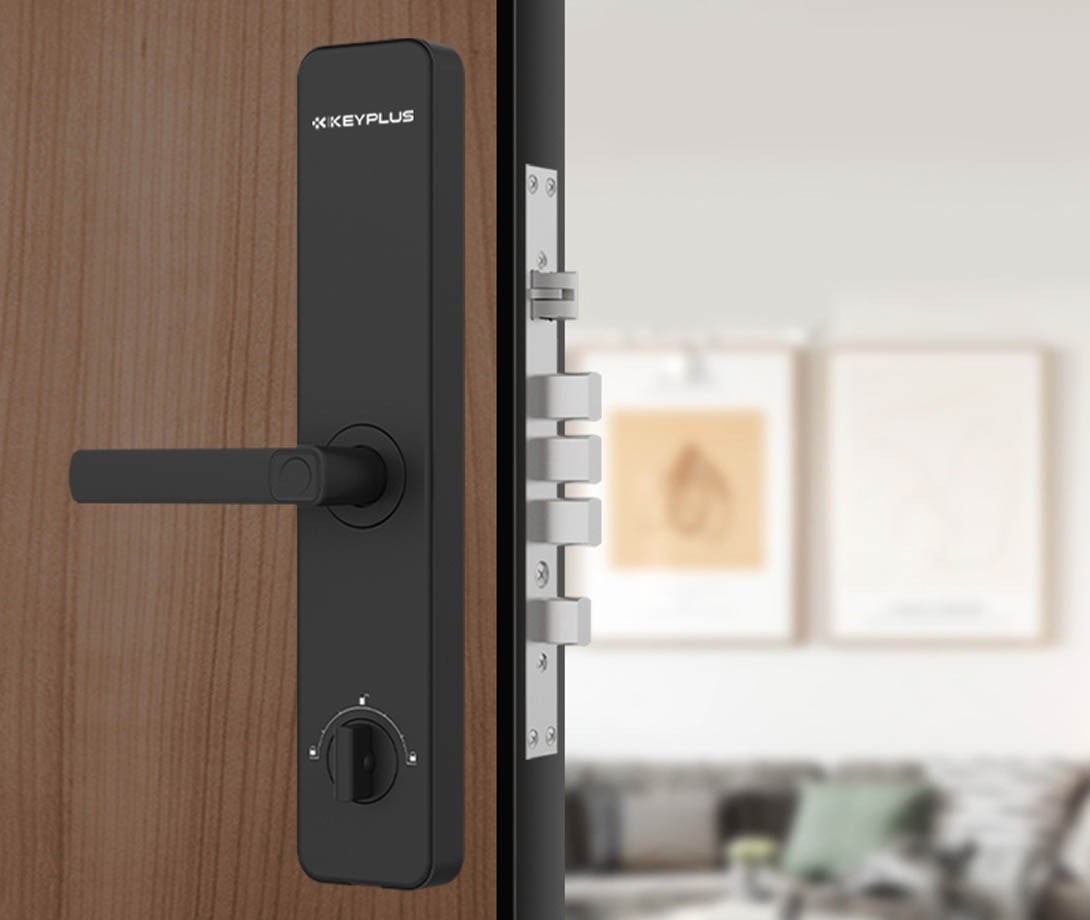WiFi vs. Bluetooth Smart Locks: Which Is Right for Your American Home?
As smart home technology becomes increasingly popular, more Americans are considering smart locks to upgrade their home security. But when shopping for these devices, you’ll quickly encounter two main connectivity options: WiFi and Bluetooth. Understanding the differences between these technologies is crucial to choosing the right smart lock for your needs.
This comprehensive guide will break down the key distinctions between WiFi and Bluetooth smart locks, helping you make an informed decision for your home security setup.
Understanding the Basics
What Are WiFi Smart Locks?
WiFi-enabled smart locks connect directly to your home wireless network, allowing for:
- Remote access from anywhere with internet
- Integration with other smart home devices
- Voice control through assistants like Alexa or Google Home
- Real-time notifications and activity logs
What Are Bluetooth Smart Locks?
Bluetooth smart locks create a direct wireless connection to your smartphone when you’re nearby, offering:
- Keyless entry when you’re at the door
- No dependence on internet connectivity
- Typically longer battery life than WiFi models
- Often simpler setup and operation
Key Differences at a Glance
| Feature | WiFi Smart Locks | Bluetooth Smart Locks |
|---|---|---|
| Remote Access | Yes (from anywhere) | No (must be nearby) |
| Internet Required | Yes | No |
| Battery Life | 3-6 months | 6-12 months |
| Connection Range | Unlimited (with internet) | Typically 30-50 feet |
| Smart Home Integration | Full integration | Limited |
| Voice Control | Yes | Usually no |
| Installation Complexity | Moderate | Simple |
| Price |
200−400 |
150−300 |
Detailed Comparison
1. Connectivity and Remote Access
WiFi Locks:
- The standout feature is remote access - lock/unlock your door from anywhere
- Check status and receive alerts when away from home
- Ideal for granting access to guests or service providers remotely
- Requires stable home WiFi network
Bluetooth Locks:
- Only work when your phone is nearby (typically within 30-50 feet)
- No remote access capability
- Better for homeowners who primarily want keyless entry at the door
- No internet dependency makes them more reliable in areas with spotty WiFi
Best for remote access: WiFi locks
2. Smart Home Integration
WiFi Locks:
- Seamlessly connect with Alexa, Google Assistant, Apple HomeKit
- Can be part of automated routines (e.g., “Goodnight” scene that locks doors)
- Often work with security systems like Ring or Nest
Bluetooth Locks:
- Limited smart home compatibility
- May require a separate hub for advanced integration
- Typically don’t work with voice assistants
Best for smart homes: WiFi locks
3. Battery Life and Power Consumption
WiFi Locks:
- Constant WiFi connection drains batteries faster
- Typically last 3-6 months on standard batteries
- Some models have low-battery warnings
Bluetooth Locks:
- More energy efficient
- Battery life typically 6-12 months
- Bluetooth only activates when needed (when you approach)
Best battery life: Bluetooth locks
4. Security Considerations
WiFi Locks:
- Potential vulnerability to hacking (though rare with proper security)
- Require strong network security (WPA2/WPA3 encryption)
- Regular firmware updates needed for security patches
Bluetooth Locks:
- More secure against remote attacks
- Limited range reduces hacking risk
- Still use strong encryption for local connections
Most secure: Bluetooth locks (for local security), WiFi locks (for monitoring)
5. Installation and Setup
WiFi Locks:
- More complex installation
- May require router configuration
- Sometimes need WiFi extender if signal is weak at door
Bluetooth Locks:
- Generally simpler setup
- No network configuration needed
- Often true DIY installations
Easiest to install: Bluetooth locks
6. Reliability
WiFi Locks:
- Depend on home internet stability
- May disconnect during network outages
- Still typically have manual override options
Bluetooth Locks:
- Work without internet
- More reliable in areas with poor WiFi
- Often include physical key backup
Most reliable: Bluetooth locks
7. Cost Comparison
WiFi Locks:
- Typically
200−400
- Higher-end models with more features
- May require subscription for advanced features
Bluetooth Locks:
- Generally
150−300
- Fewer features mean lower cost
- No ongoing costs
Most affordable: Bluetooth locks
Who Should Choose Which?
Choose a WiFi Smart Lock If You:
- Want to control your lock remotely
- Have other smart home devices to integrate
- Need to grant access to family/guests when away
- Want voice control capabilities
- Don’t mind shorter battery life
Choose a Bluetooth Smart Lock If You:
- Primarily want keyless entry at your door
- Have unreliable or no internet connection
- Prefer longer battery life
- Want simpler setup and operation
- Are concerned about potential WiFi security risks
Pro Tips for American Homeowners
- For Vacation Homes: WiFi is better for remote monitoring
- For Urban Apartments: Bluetooth may suffice with shorter ranges needed
- For Smart Home Enthusiasts: WiFi enables full automation
- For Seniors/Technophobes: Bluetooth offers simpler operation
- For Security-Conscious: Consider Bluetooth’s reduced hacking risk
Future Trends
The smart lock market is evolving with:
- Matter compatibility emerging for better interoperability
- Biometric options (fingerprint, facial recognition) becoming more common
- Dual-band WiFi (2.4GHz and 5GHz) improving connectivity
- Energy harvesting technologies extending battery life
Final Recommendation
For most American homeowners, the choice comes down to your specific needs:
- Tech-savvy users building smart homes will prefer WiFi locks for remote access and integration
- Practical users wanting simple keyless entry should choose Bluetooth locks for reliability
- Undecided users might opt for hybrid models that offer both connectivity options
Consider your daily routines, technical comfort level, and home setup when making your decision. Both technologies represent significant upgrades over traditional keys, just with different strengths.
Have you tried either type of smart lock? Share your experiences in the comments below!
Post time: May-05-2025


